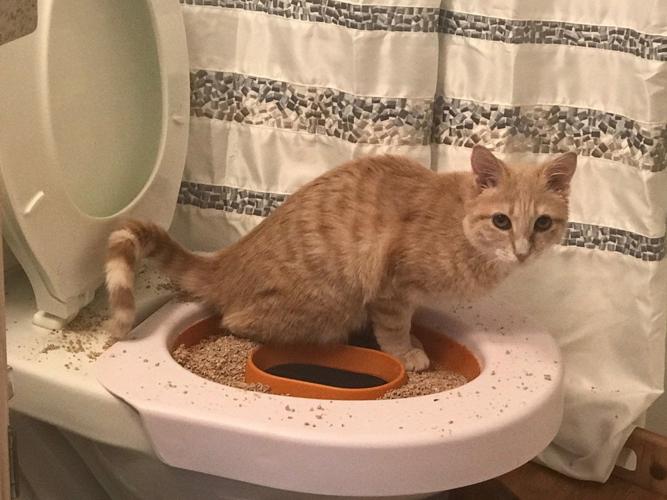They are making a number of great points on the subject of Don’t flush cat feces down the toilet in general in the content just below.

Introduction
As cat proprietors, it's vital to be mindful of just how we deal with our feline close friends' waste. While it might appear practical to flush feline poop down the toilet, this practice can have harmful consequences for both the setting and human health.
Environmental Impact
Purging feline poop introduces hazardous microorganisms and bloodsuckers right into the supply of water, posing a considerable danger to water environments. These contaminants can adversely impact marine life and compromise water high quality.
Health and wellness Risks
In addition to ecological problems, purging feline waste can also present wellness threats to human beings. Feline feces might consist of Toxoplasma gondii, a bloodsucker that can create toxoplasmosis-- a potentially serious illness, specifically for pregnant women and individuals with damaged body immune systems.
Alternatives to Flushing
Luckily, there are more secure and more liable means to throw away cat poop. Think about the complying with options:
1. Scoop and Dispose in Trash
The most common method of disposing of pet cat poop is to scoop it right into a biodegradable bag and throw it in the garbage. Be sure to use a dedicated clutter scoop and dispose of the waste promptly.
2. Use Biodegradable Litter
Select eco-friendly feline litter made from materials such as corn or wheat. These trashes are eco-friendly and can be safely thrown away in the garbage.
3. Hide in the Yard
If you have a yard, take into consideration hiding cat waste in an assigned area far from vegetable yards and water sources. Be sure to dig deep sufficient to stop contamination of groundwater.
4. Install a Pet Waste Disposal System
Invest in an animal garbage disposal system especially developed for feline waste. These systems make use of enzymes to break down the waste, decreasing odor and environmental impact.
Final thought
Responsible pet possession expands beyond supplying food and sanctuary-- it additionally involves correct waste administration. By refraining from flushing feline poop down the toilet and opting for alternative disposal methods, we can lessen our ecological impact and secure human wellness.
Why Can’t I Flush Cat Poop?
It Spreads a Parasite
Cats are frequently infected with a parasite called toxoplasma gondii. The parasite causes an infection called toxoplasmosis. It is usually harmless to cats. The parasite only uses cat poop as a host for its eggs. Otherwise, the cat’s immune system usually keeps the infection at low enough levels to maintain its own health. But it does not stop the develop of eggs. These eggs are tiny and surprisingly tough. They may survive for a year before they begin to grow. But that’s the problem.
Our wastewater system is not designed to deal with toxoplasmosis eggs. Instead, most eggs will flush from your toilet into sewers and wastewater management plants. After the sewage is treated for many other harmful things in it, it is typically released into local rivers, lakes, or oceans. Here, the toxoplasmosis eggs can find new hosts, including starfish, crabs, otters, and many other wildlife. For many, this is a significant risk to their health. Toxoplasmosis can also end up infecting water sources that are important for agriculture, which means our deer, pigs, and sheep can get infected too.
Is There Risk to Humans?
There can be a risk to human life from flushing cat poop down the toilet. If you do so, the parasites from your cat’s poop can end up in shellfish, game animals, or livestock. If this meat is then served raw or undercooked, the people who eat it can get sick.
In fact, according to the CDC, 40 million people in the United States are infected with toxoplasma gondii. They get it from exposure to infected seafood, or from some kind of cat poop contamination, like drinking from a stream that is contaminated or touching anything that has come into contact with cat poop. That includes just cleaning a cat litter box.
Most people who get infected with these parasites will not develop any symptoms. However, for pregnant women or for those with compromised immune systems, the parasite can cause severe health problems.
How to Handle Cat Poop
The best way to handle cat poop is actually to clean the box more often. The eggs that the parasite sheds will not become active until one to five days after the cat poops. That means that if you clean daily, you’re much less likely to come into direct contact with infectious eggs.
That said, always dispose of cat poop in the garbage and not down the toilet. Wash your hands before and after you clean the litter box, and bring the bag of poop right outside to your garbage bins.
https://trenchlesssolutionsusa.com/why-cant-i-flush-cat-poop/

We were made aware of that article on How to Dispose of Cat Poop and Litter Without Plastic Bags from an associate on another blog. In case you liked our post plz do not forget to share it. I praise you for your time. Please pay a visit to our website back soon.
Visit Website